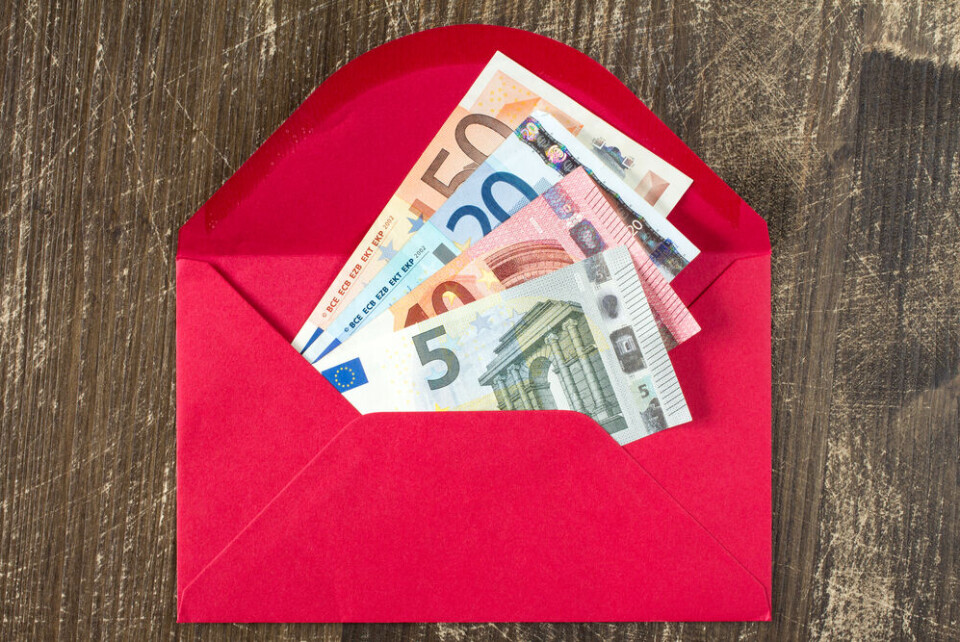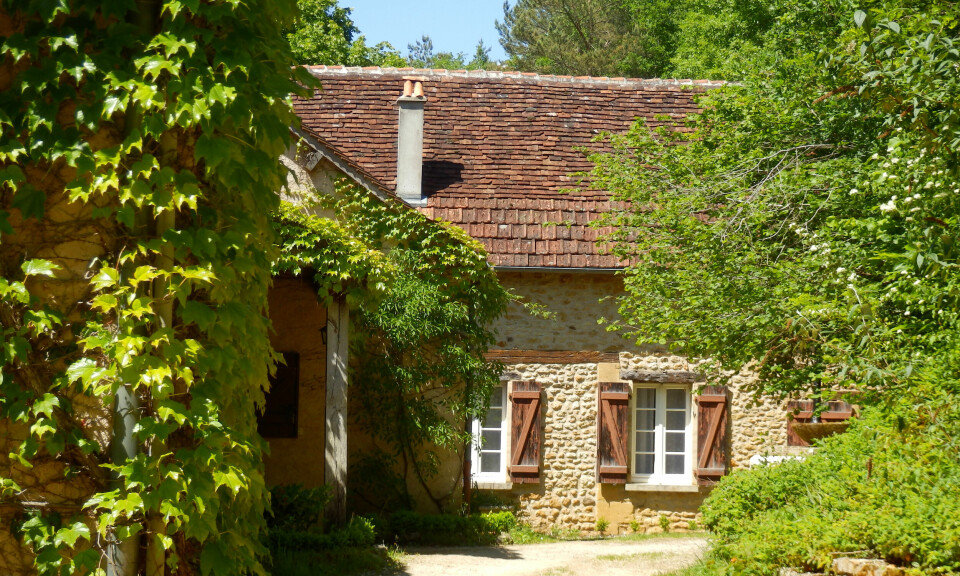-
Photos: Louis XIII-style château near Paris up for auction
The 400-year-old property has 32 hectares of parkland
-
Should France reduce the size of its baguettes to stop waste?
Would you welcome a smaller loaf?
-
Fatal HGV crashes: Goodyear in court in France over tyre defect claims
Investigators allege the firm knew about the problem but did not issue a recall
New Year Etrennes in France: How much money should you give?
With New Year celebrations on the way, the French tradition of “étrennes” – the giving of envelopes of money to essential workers who make life easier – is also approaching. But how much should you offer?

Etrennes - which roughly translates as a “surprise” or “mystery gift” - are envelopes of money given as a little thank you to helpful people in your life at the end of the year. These might include essential workers such as your postman or bin collector, as well as people from private services you use such as a concierge, cleaner, or babysitter.
Pre-Covid, firefighters, bin collectors, and postal workers would often go door-to-door selling calendars in exchange for étrennes. With social distancing measures in place, this may no longer be the case in your area. Some major cities including Paris, Nice, and Lyon, have already banned door-to-door canvassing to avoid scams.
You should check with your local mairie about how to give étrennes safely (such as buying a calendar online) to essential workers during the pandemic.
How much money should I give for étrennes in France?
The amount you give is up to you, but here are some recommendations of benchmark figures to help you to navigate the tradition with ease.
€5-€10 to your postal worker
Postal workers in France can expect to receive a minimum of €5 per household, though it’s more usual to give €10.
Households are warned that they only need to give money to their regular postal worker, and not those who only visit during the holiday period, nor anyone who you do not recognise.
€5 to your bin collector
The leaving of an amount for your bin collector is seen as a small-yet-significant gesture in France, as a nod to a difficult profession that is often forgotten despite its necessity.
Many workers who receive the money will then distribute it evenly among the rest of the crew.
€5-€10 to the local fire brigade
Traditionally, some households also give homemade gifts, such as a pot of jam or a children’s drawing.
In some fire stations and fire brigade associations, the money collected is brought back and put in a communal pot.
Some of the money is given to the fire workers themselves, and the rest is donated to the association or the Union department, to finance competitions, sporting activities, or other events. The money may also be used to upgrade the fire station environment with new furniture or equipment, too.
€30-€70 to your building’s concierge
For those who live in a building with a reception or door staff, it is traditional to give around 5 to 10% of your monthly rent at New Year. This works out at around €30-€70 for tenants paying an average of €670 a month.
This tradition has a long history, dating back to the economically turbulent 1930s. Some people give gifts, but generally, money is preferred, especially as a concierge may not earn much.
€30-€50 to your cleaner
The amount you pay typically depends on the relationship you have with your cleaner and the regularity of their work. The more often your cleaner comes to your home, obviously the higher the amount. For occasional cleaning, you can give about €30. Otherwise, it’s recommended to give about €50 or up to half of your cleaner’s usual monthly payment. Some households may also prefer to give a little present.
€50 or a small present for your child’s babysitter
The same goes for your babysitter. If it is a teenager who comes once or twice a month, for example, a small gift is usually offered. On the other hand, if it is a more regular relationship, it is better to give €50 in notes.
Your child’s babysitter may spend a great deal of time with your little ones and have been with your family for many years. In this case, money is of course welcome but it may make more sense to give a personalised present.
Where does the tradition of étrennes come from?
One theory is that étrennes can be traced back to the Romans, who began to give each other gifts during the first days of January. The term “étrennes” comes from the Latin “strena” which means a gift to bring good fortune. At the time, gifts were given to family and friends, as well as important members of the community.
Related stories
Covid and Christmas: French government's four tips for staying safe
Why is New Year called the Réveillon de la Saint-Sylvestre?
























